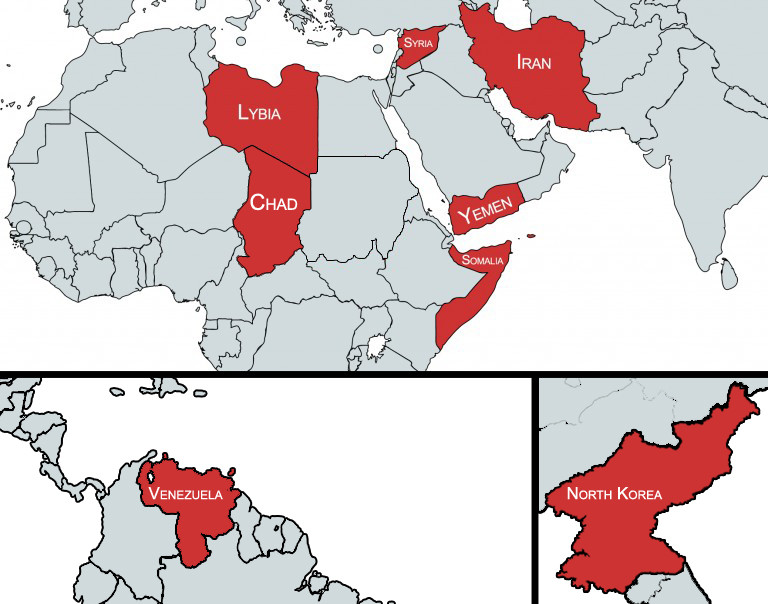On June 26, 2018, the U.S. Supreme Court upheld the legality of Travel Ban 3.0 in its consideration of Trump v. Hawaii. Travel Ban 3.0 indefinitely restricts and/or suspends travel of individuals from the following countries to the United States: Iran, Libya, North Korea, Somalia, Syria, Venezuela and Yemen.
A waiver may be granted to an applicant in one of the following circumstances:
- The applicant has previously been admitted to the United States for a continuous period of long-term activity, is outside of the United States on the effective date of the proclamation, seeks to re-enter the United States to resume that activity, and the denial of re-entry would impair that activity;
- The applicant has previously established significant contacts with the United States but is outside the United States on the effective date of the proclamation for work, study, or other lawful activity;
- The applicant seeks to enter the United States for significant business or professional obligations and the denial of entry would impair those obligations;
- The applicant seeks to enter the United States to visit or reside with a close family member who is a United States citizen, lawful permanent resident, or alien lawfully admitted on a valid non-immigrant visa, and the denial of entry would cause undue hardship;
- The applicant is an infant, a young child or adoptee, an individual needing urgent medical care, or someone whose entry is otherwise justified by the special circumstances of the case;
- The applicant has been employed by, or on behalf of, the United States Government (or is an eligible dependent of such an employee) and the employee can document that he or she has provided faithful and valuable service to the United States Government; or
- The applicant is traveling as a United States Government-sponsored exchange visitor.
Although waivers to Travel Ban 3.0 are technically available to individuals with established ties to the U.S. or for other compelling reasons, the waiver process is extremely stringent and non-transparent. According to the latest Department of State publicly available statistics, from December 8, 2017 to June 15, 2018, 809 visa applicants have had waivers approved.

